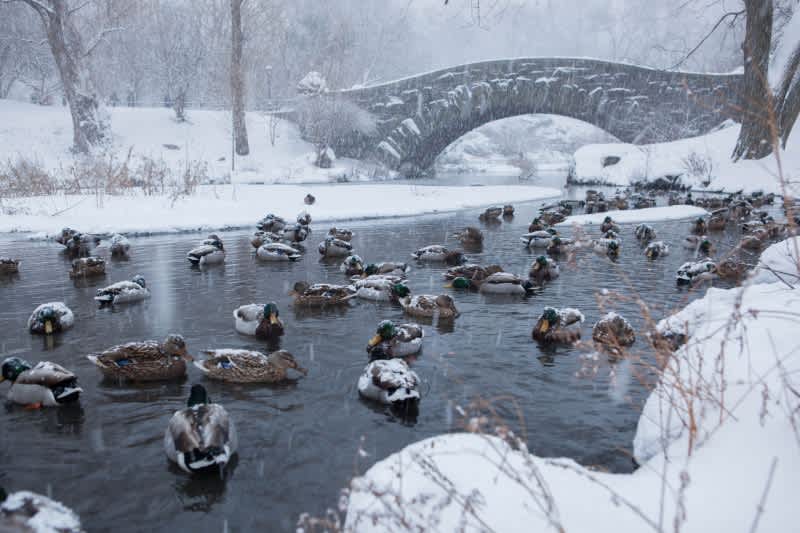Tragedy on the River: Looking Back on the Armistice Day Blizzard
Daniel Xu 11.12.15

Not a lot of people think of duck hunting as a dangerous sport. There’s an element of danger associated with any activity involving firearms, but with the gamut of hunter safety and gun safety courses today, chasing after ducks is now the safest it has ever been. Preparation, we’re always told, is the most important part of staying safe. Part of that may be due to the lessons we learned 75 years ago.
November 11, 1940, Armistice Day, will continue to be remembered as one of the darkest days in hunting for the modern era. Renamed in 1954 as Veterans Day, Armistice Day previously celebrated the end of World War One. In 1940, as war raged in Europe and the US was under increasing pressure to intervene, the holiday offered many Americans a chance to forget about tensions overseas and enjoy some time off.
The day had started off pleasantly enough. Thousands of hunters were planning on spending the holiday duck hunting, and although the weather had been unusually warm through October, a chill around midday began to lift their spirits. It was still warm enough for shirts and light jackets, so hunters left their heavier clothing at home and set off in nothing more than typical fall attire. There was little warning from weather forecasters, and in popular hunting grounds like the Mississippi River, ducks swarmed. It was unusual behavior, but hunters wrote it off as just good fortune.
Little did they know that the birds were flying away from a storm that would later cut a 1,000-mile-wide swath from Kansas to Michigan, dumping snow and sleet along the way. Snowfalls of up to 27 inches stranded hunters where they stood or huddled, and 20-foot-high snow drifts obscured any visibility. The massive blizzard crippled rescue services and survivors were left to their own devices as the temperature dipped to as low as negative 55 degrees overnight. By the next day, more than 150 people were dead across the Midwest, and many were duck hunters.
“Many thousands and thousands of people were stranded where they didn’t want to be, at work or at school or in trains or in bus terminals… it was just total chaos,” climatologist Mark Seeley told the Owatonna People’s Press.
Jim Bice, a 92-year-old man living in La Crosse, remembered braving the storm with his father to rescue his brother Dick and a friend, La Vern Reiber, who were trapped on an island in the Mississippi River while hunting. He was 17 at the time.
“My dad and I, and La Vern’s dad, drove to the landing where Dick and La Vern launched their boat. We found their car. But there was no sign of them,” he told the Star Tribune. “All night we stayed right there, in our cars, running the engines to keep the heaters on.”
Bice said they waited until the ice got thicker and walked upriver until they found the two men, cold and shivering under a skiff with their dogs. They were the fortunate ones. About 20 hunters died near the Mississippi River that day. Most were trapped on the scattered islands in the region and were later found covered almost entirely in snow. Many of those who tried to reach shore were overtaken by 50 mph winds and dumped into the river, where they drowned.
In spite of such overpowering odds, there were still acts of heroism that prevented many more lives from being lost. Some hunters were guided home by loved ones or even sought shelter with strangers, while others banded together to brave the blizzard. Perhaps one of the most notable acts was when John R. Bean and Max Conrad, two aviators, flew up and down the Mississippi River and dropped supplies to the hunters they found. Conrad would later earn fame as a record-setting aviator and has a Minnesota airport named in his honor.
If anything good did of come of the blizzard, it is the vast improvements in weather forecasting and the heightened focus on hunter safety. Instead of having a single station in Chicago forecasting for the entire region—which many experts called a dismal failure—smaller offices were created to give more accurate, local forecasts. State and federal agencies developed more effective ways to deal with winter storms, and advances in technology made it easier for hunters to survive even when stranded temporarily.
Remember to layer up before you hit the field. It could very well save your life.

